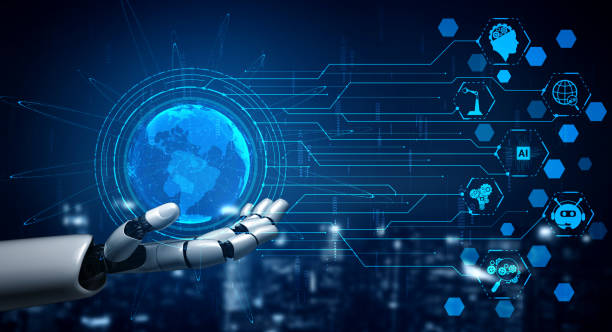Artificial Intelligence (AI) has become a transformative force in computer technology, revolutionizing how computers perform tasks that once required human intelligence. From machine learning algorithms to natural language processing, AI is reshaping the capabilities of computers and expanding their potential applications.
Understanding Artificial Intelligence
AI refers to the simulation of human intelligence processes by machines, especially computer systems. It encompasses a range of technologies, including machine learning, neural networks, and deep learning, which enable computers to learn from experience, recognize patterns, and make decisions with minimal human intervention.
Evolution of AI in Computer Technology
- Early Developments: AI research dates back to the 1950s, with pioneers like Alan Turing laying the groundwork for machine intelligence. Early AI systems focused on rule-based reasoning and symbolic manipulation.
- Machine Learning: In the 1980s and 1990s, machine learning emerged as a dominant AI approach, enabling computers to learn from data and improve their performance over time. This led to advancements in areas such as image recognition, speech recognition, and autonomous vehicles.
- Deep Learning: Deep learning, a subset of machine learning, has fueled recent AI advancements. Deep neural networks, inspired by the structure of the human brain, can analyze complex data and extract meaningful patterns, leading to breakthroughs in areas like natural language processing and computer vision.
Impact of AI on Computer Technology
- Enhanced Automation: AI enables computers to automate repetitive tasks, increasing efficiency and reducing human intervention. This is evident in industries like manufacturing, where AI-powered robots streamline production processes.
- Improved Decision-Making: AI algorithms can analyze vast amounts of data and make data-driven decisions. In fields like finance and healthcare, AI helps professionals make more informed choices by identifying patterns and trends that may not be apparent to humans.
- Personalized Experiences: AI enables computers to personalize experiences for users based on their preferences and behavior. This is seen in recommendation systems used by platforms like Netflix and Amazon to suggest content based on past interactions.
- Advanced Problem Solving: AI enables computers to tackle complex problems that were once thought to be solvable only by humans. For example, AI-powered systems can now diagnose diseases, play complex games like chess and Go, and even create art and music.
- Natural Language Processing: AI has significantly improved natural language processing capabilities, enabling computers to understand and generate human language. This has led to the development of virtual assistants like Siri and Alexa, which can understand and respond to spoken commands.
- Autonomous Systems: AI is driving the development of autonomous systems, such as self-driving cars and drones. These systems use AI algorithms to perceive their environment and make decisions, enabling them to operate without direct human control.
Challenges and Future Directions
While AI has made significant strides in computer technology, several challenges remain. These include concerns about job displacement, ethical considerations, and the potential for AI to be used maliciously. However, researchers and technologists are working to address these challenges and unlock the full potential of AI in computer technology.
Conclusion
Artificial Intelligence is revolutionizing computer technology, enabling computers to perform tasks that once seemed impossible. From automation to personalized experiences, AI is reshaping how we interact with computers and the world around us. As AI continues to evolve, its impact on computer technology is expected to grow, leading to even more profound advancements in the years to come.








